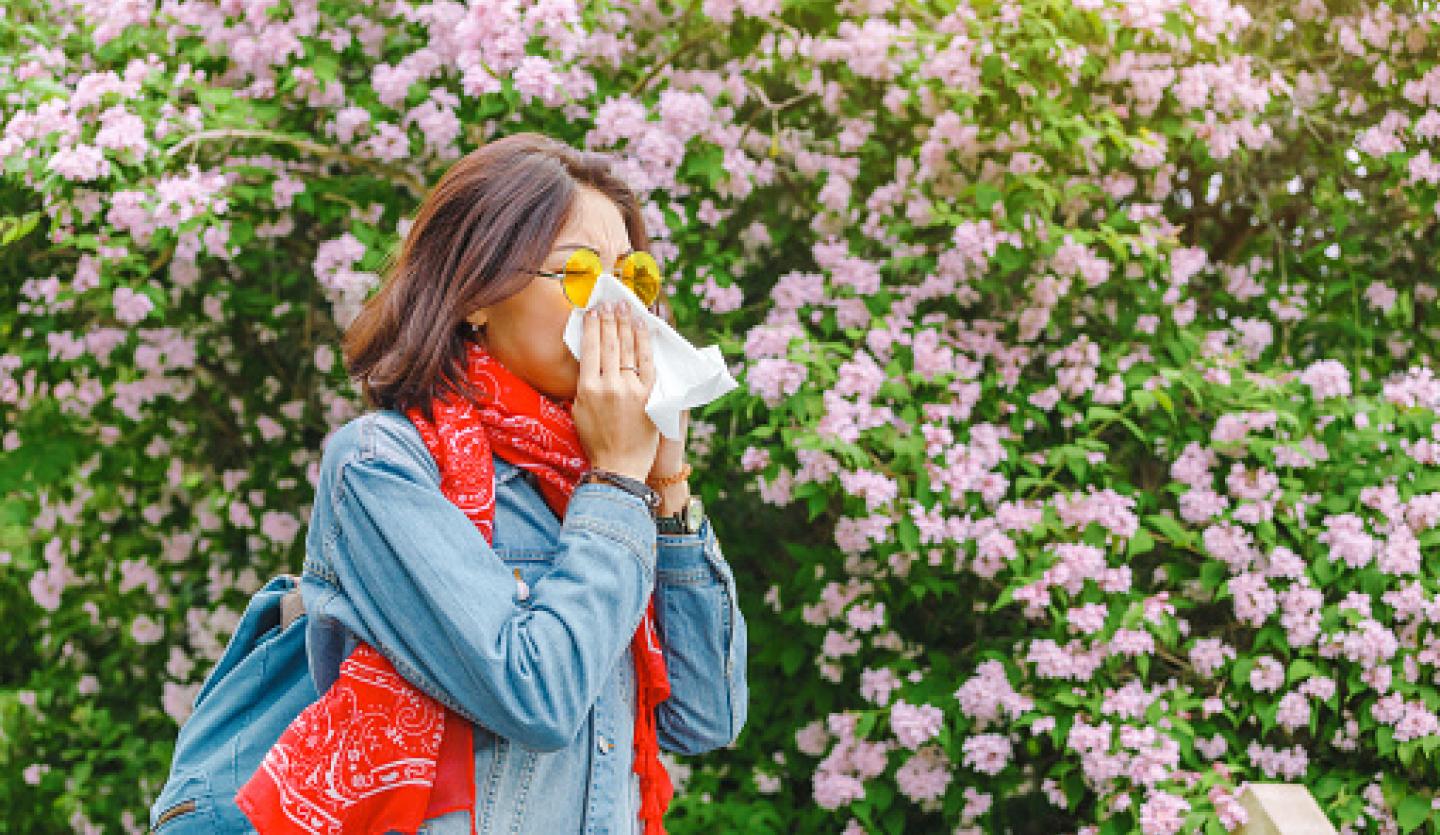What are allergies?
An allergy is defined as a condition in which an individual's particular immune system reacts to something that is foreign to their body. Certain drugs, foods and especially indoor and outdoor environmental allergens (irritants to one's immune system) can cause a particular immune system to secrete histamine and other inflammatory mediators that may cause:
- Sneezing (allergic rhinitis)
- Itchy/watery eyes (allergic conjunctivitis)
- Wheezing
- Chest discomfort with an occasional cough
- Shortness of breath and difficulty breathing (allergic asthma)
Understanding how you react to an environmental allergen:
1. Identify the triggering environmental culprit(s) that can be seasonal, perennial (year-long) or all seasons.
2. When a physician identifies you with an environmental allergen, they are likely referring to tree pollen, grass pollen, weed pollen, mold spores (increases in damp areas), animal dander (skin and saliva of an animal) and dust mites.
3. The most common allergens in the springtime are pollens such as tree, grass and weed. Your body looks at these allergens as irritants. If you are allergic, and your body is exposed to these allergens by breathing in the pollen, then your body's cells will release inflammatory mediators called histamine. This triggers sneezing, nasal congestion, runny nose, post nasal drip, coughing and itchy, watery eyes.
In the summer months, in addition to the above allergens, there is also dust mite allergy since the dust mite population increases in the high humidity. Ragweed pollens also increase in the late summer and early fall months.
Hot weather and increased humidity (the water in the air we breathe) aggravates the airways and causes mucous to accumulate in the airways. This causes tightening/inflammation of the airways and asthma exacerbation.
Tips to avoid allergens
Tip 1: Try to stay inside on windy, dry and humid days.
Tip 2: Avoid freshly cut grass.
Tip 3: Keep windows and car windows closed. Use air-conditioning if possible.
Tip 4: Shower to remove the allergens from your body after coming inside after exposure to the outdoors.
Tip 5: Try to exercise outdoors in the evening or after it rains. Also, exercising outside during the daytime on dry and windy days will increase exposure to allergens.
Tip 6: Remove yourself from dusty and moldy environments, such as damp basements, that will trigger an allergic attack.
Tip 7: Over-the-counter anti-allergy medications may help alleviate minor allergy symptoms. Avoid nasal sprays and decongestants until you discuss with your physician.
View our allergy and immunology services.

